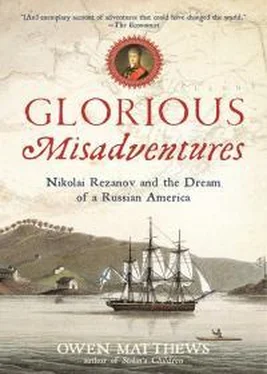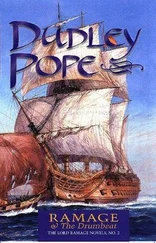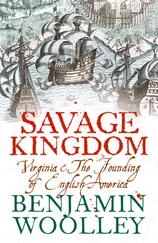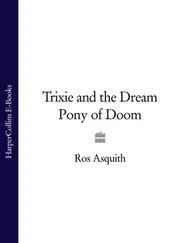The newly-founded British empire had been created by a couple of decisive battles and could, Napoleon wrote to Paul, be undone just as quickly. The memory of England’s two great colonial coups was still only a generation old: in 1757 the British East India Company’s General Robert Clive had broken the Mogul empire at the Battle of Plassey. Two years after that, Major General James Wolfe’s daring attack on the fortress of Quebec ensured that the vast territory of New France, stretching across much of modern Canada, had come under the British crown.
It was an age of prodigies of conquest, navigation and empire-building. Napoleon had shown the way, but his alliance with Russia had collapsed with Tsar Paul’s murder in 1801. Nonetheless, the time had come, Rezanov believed, for Russia to make her own move on the world stage. But her bold imperial gambit would be in the New rather than the Old World. Russia would colonize America from the west.
Rezanov’s instrument was to be, like Clive of India’s, a powerful private company. The Russian American Company, founded by Rezanov in 1799 with an exalted list of shareholders headed by the Tsar himself, was closely modelled on Britain’s East India Company. It had a royal charter, the right to raise armies and dispense justice, and a trade monopoly designed to bring both dominion and profit.
Since the 1780s Russian merchant-adventurers had established a hold – albeit a precarious one – on the Pacific shore of America. A string of lonely stockades and forts manned by a motley array of convicts, fur trappers and foreign desperadoes spanned 4,000 miles of the northern Pacific rim from the Kamchatka peninsula through the Aleutian archipelago to the newly founded capital of Russian America at New Archangel – modern Sitka – at the southern end of the present-day US state of Alaska. Nonetheless Rezanov was convinced that the unclaimed 1,500 miles of territory that separated New Archangel from San Francisco was ripe for the taking – as was the sparsely populated and barely defended empire of New Spain that lay beyond.3
‘Your Excellency perhaps may laugh at my far-reaching plans, but I am certain that they will prove exceedingly profitable ventures. If we had men and means even without any great sacrifice on the part of the treasury all this country could be made a corporeal part of the Russian Empire,’ Rezanov wrote to his patron the minister of commerce after his return from California in 1806. ‘Not through petty enterprise but by great undertakings have mighty commercial bodies achieved rank and power.’
The betrothal of Rezanov and Conchita Arguello on the shores of the Pacific marked the closing of a circle. The Spanish and the Russian empires had been working their way towards each other since the late fifteenth century. Spain had sent its conquistadors west to the New World of the Americas; Russia had dispatched Cossack adventurers east into the wildernesses of north Asia. The Spaniard Vasco Núñez de Balboa was the first Westerner to set eyes on the Pacific Ocean, crossing the Isthmus of Panama in 1513. One hundred and twenty years later the Russian fur trapper Ivan Moskvitin crested the ridge of the Okhotsk Mountains and gazed eastwards at the same ocean. American gold fuelled a century of Spain’s European wars and the glory of the court of Madrid, while Siberia’s ‘soft gold’ – fur – paid for campaigns against the Swedes, Turks and Tatars as the Russians carved themselves an empire and a place on the European stage. And now the two empires had finally met, with the hungry Russians regarding the fat and ill-defended Spanish lands of California with greedy eyes.
Of the two fledgling European colonies on America’s northern Pacific coast at the dawn of the nineteenth century, it was New Archangel, not San Francisco, which was the more populous and better defended. Ships were built on New Archangel’s slipways and Boston traders regularly stopped in for news and supplies.4 Spanish San Francisco, in comparison, had a garrison of just forty soldiers and no docks when Rezanov visited in 1806. The Spanish governor of Nueva California told Rezanov that ‘the Spanish Court feared Russia above all the other powers’.5
For Rezanov, not to seize the territory would be a crime against posterity. ‘If we allow it to slip through our fingers, what will succeeding generations say?’ he wrote. ‘I, at least, shall not be arraigned before them in judgement.’6
Any historian who sets out to search for a hero will almost inevitably uncover something of the scoundrel. Heroism, it seems, is visible only through a long lens. And so it was with Rezanov. I followed the man’s shade from the boulevards and palaces of St Petersburg to the squat rain-dripping counting houses of Pskov, where he passed a dreary provincial apprenticeship. Travelling by train, coal truck and bouncing Lada, I tracked him from the Siberian city of Irkutsk, once the capital of Russia’s wild east, into the land of the Buryats and to the borders of China. I crunched along the black sand beaches of Petropavlovsk in Kamchatka and the black sand beaches of Kodiak Island, Alaska, at opposite ends of the Pacific. I stood in the remains of the presidio where Rezanov had danced with Conchita and shivered in the rain on the windy outcrop known as Castle Rock in Sitka, once the citadel of New Archangel, where he had spent the cold, hungry winter of 1805–6. And I spent hours – many hours, since Rezanov was a bureaucrat, a courtier and an ambassador who wrote something almost every day of his life – in the company of the reports, diaries and letters in which Rezanov described his ideas and circumstances voluminously, but his feelings only barely. It is only in the last three years of his life, far from home and viciously bullied by the officers of the round-the-world voyage he believed he was commanding, that the man himself begins to emerge from the officialese, indignant and in pain.
The far side of the world was where Rezanov found both humiliation and, perhaps, love. Either – or both – seem to have liberated his spirit. But the privations he suffered and the power he wielded in those remote provinces of the Russian Empire also drove him a little mad. Rezanov was a great imperial visionary, but he could also be a liar and a schemer. He had moments of great bravery and sacrifice, but he was capable of shameless acts of buck-passing cowardice. Rezanov was a courtier and politician of genius, but he also dispensed summary justice and launched a private war against Japan for reasons of personal revenge. He probably loved Conchita, but in his official reports did everything to portray the relationship with the poor girl as a cynical political game. He was morbidly conscious of his own status to a degree that seems absurd to us today, yet during his embassy to Japan and his visit to California front and bluster were really all he had to offer, and they took him remarkably far.
So Rezanov was perhaps not a hero. But certainly he was a man whose life spanned worlds. The two worlds in which he moved – the court and the wilderness – were separated by a social and geographical distance almost too vast to be grasped by a modern mind. Rezanov spoke to tsars and numbered the Russian Empire’s greatest men as his friends and enemies. His plans for Russian America were the subject of lively correspondence between Napoleon and Tsar Paul as they laid their plans for world domination. Yet Rezanov spent much of the last years of his life scrabbling for food and squabbling with illiterate mutinous frontiersmen.
Nikolai Rezanov wanted to make his country a match for the upstart France with only a gang of Cossacks, criminals and the renegades of the frontier at his command. He wanted to plant a new, better Russia in the New World just as old England had created a vigorous new version of herself in the Thirteen Colonies which had recently formed themselves into the United States. Russian America would not be a republic, of course, but a well ordered company-run empire under the Tsar’s protection. That was his imperial vision – a dream of which almost nothing remains today. And yet in his lifetime it seemed, for a few tantalizing years, that Russia could successfully colonize America, with incalculable consequences for both.
Читать дальше












